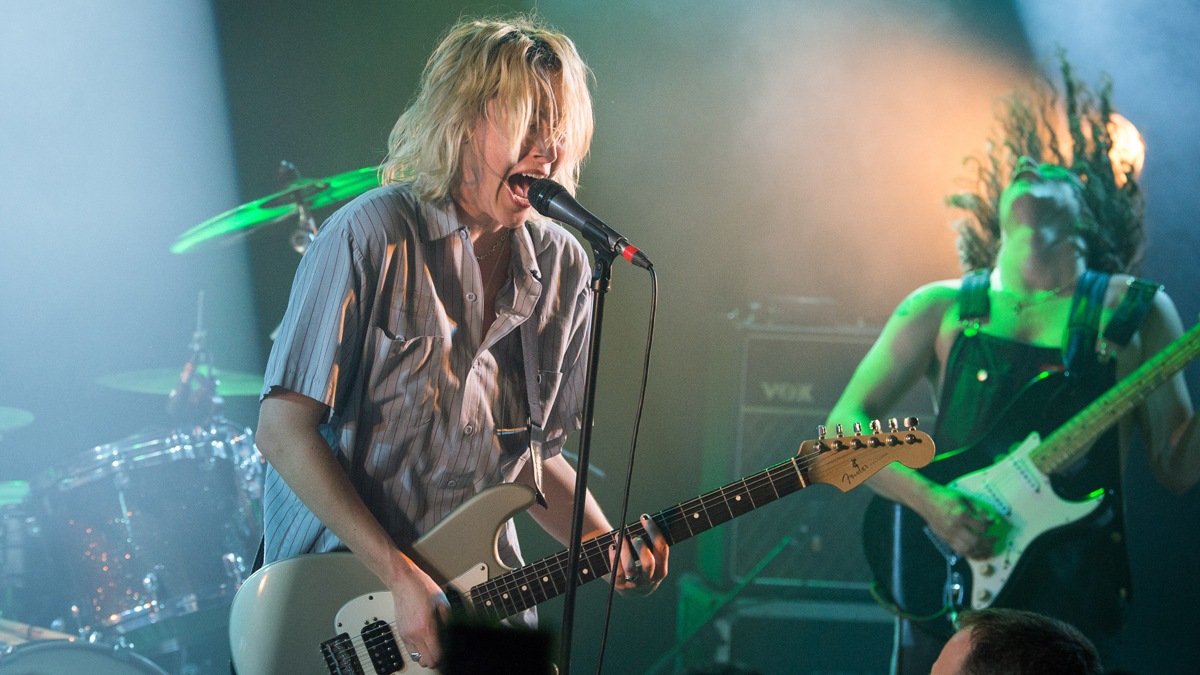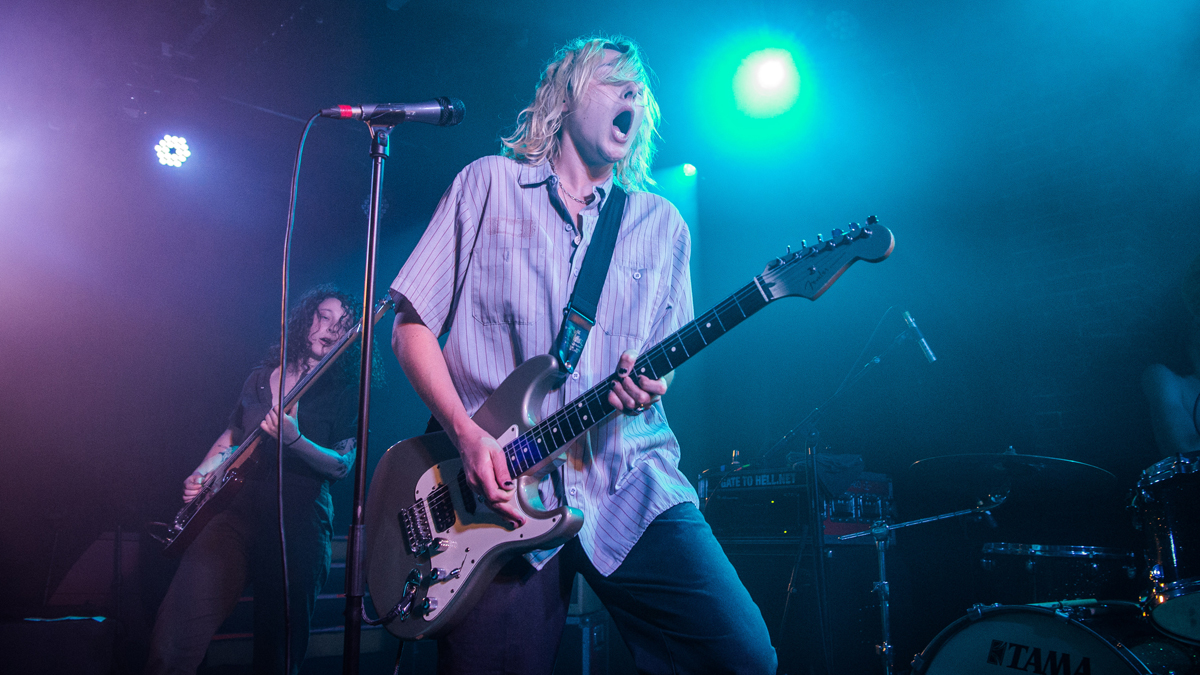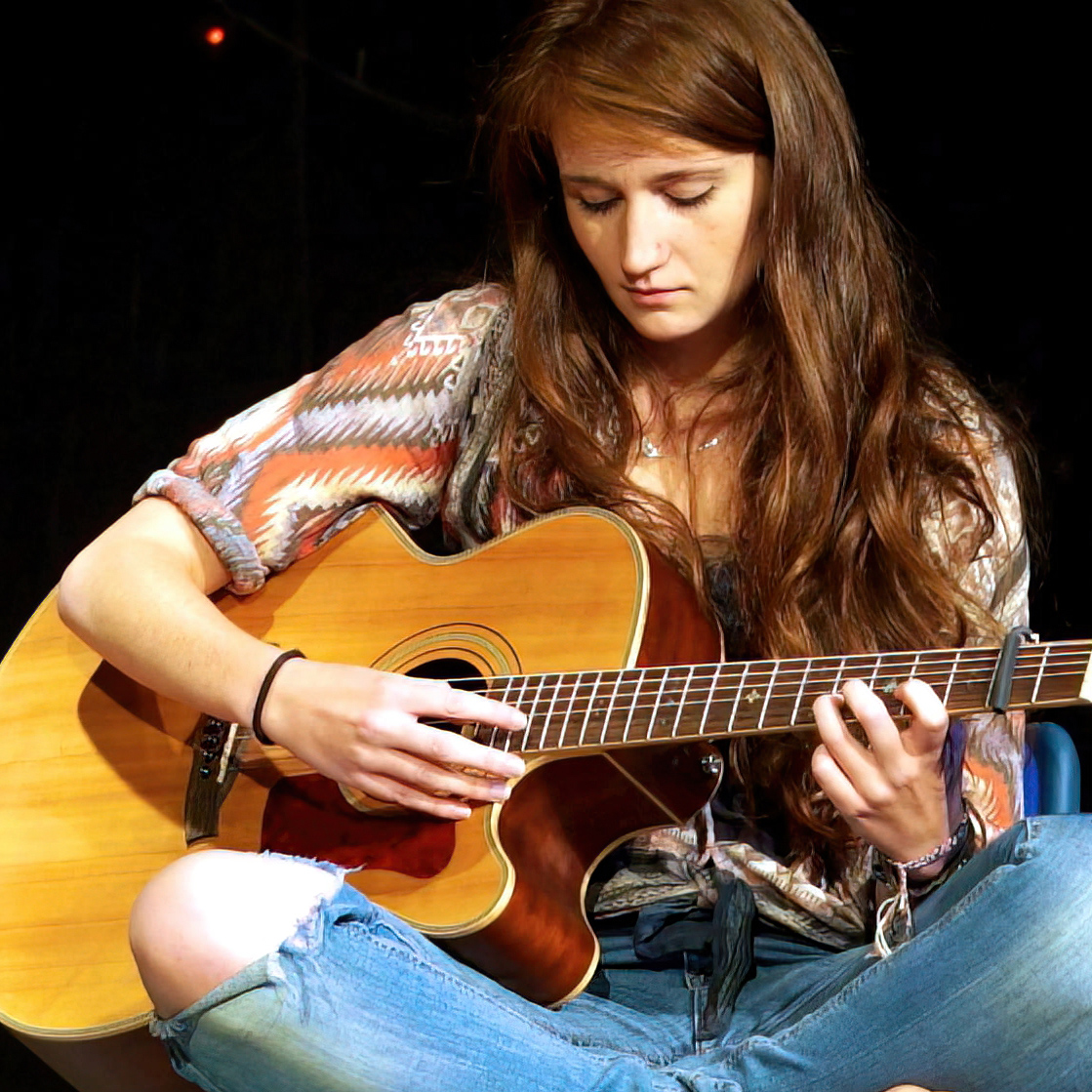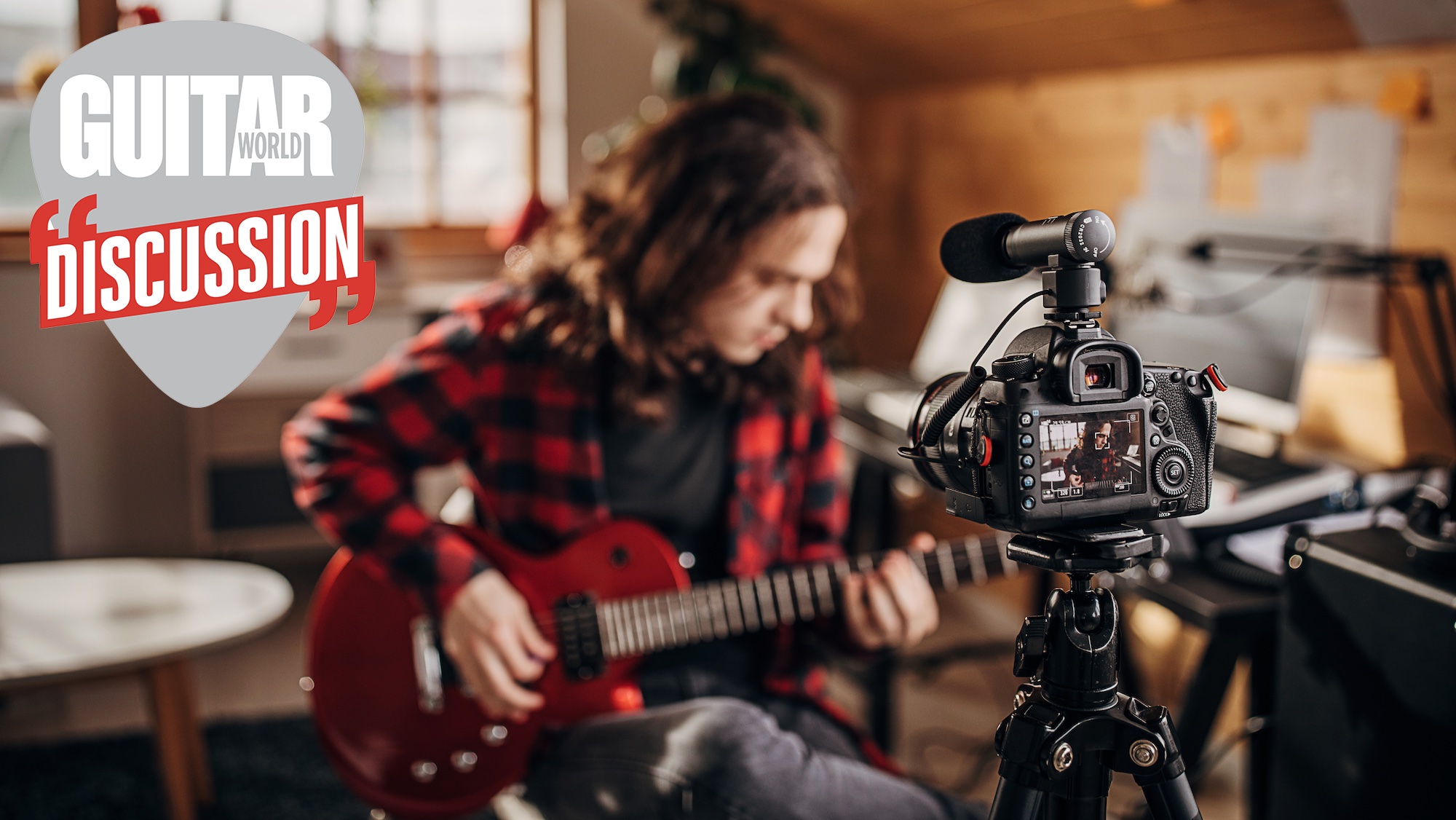The Bobby Lees on how no-holds-barred songwriting and a musical molotov cocktail helped them create primal new album, Bellevue
Sam Quartin and Nick Casa dissect the band’s in-your-face, garage rock songcraft and explain why the guitar is just as important as a limb – even if it might not be the most enjoyable to play

All the latest guitar news, interviews, lessons, reviews, deals and more, direct to your inbox!
You are now subscribed
Your newsletter sign-up was successful
Hailing from Woodstock, UK, The Bobby Lees are a garage punk force to be reckoned with. They came together when actress, singer and guitarist Sam Quartin upped sticks from New York City back in 2017, and recruited a band of talented teenagers from what lead guitarist Nick Casa describes as an “after school-type program” called The Rock Academy.
In true DIY style, they’ve since spent much of their time booking their own gigs and driving around the country to play them. For this interview, Quartin and Casa dialed in from the band van while en route to showcase tracks from their new record, Bellevue, live and loud on stage in Baltimore.
“We’ve been sitting on this body of music for quite some time,” says Casa of their third studio LP, which follows Beauty Pageant (2018) and Skin Suit (2020). “We’re just excited to have some more music out there for people to listen to, and we’re really pumped to be getting out and playing.”
Recorded at Sputnik Sound Studios in Nashville and produced by Vance Powell – whose credits include Jack White and Chris Stapleton – the feverish riot that is Bellevue races through 13 visceral tracks, each packing enough caustic power to peel the paint off your house.
“We try to put out as much honest energy and be as transparent in our music as possible,” reasons Casa.
Album opener Bellevue welcomes the listener to the party like a headbutt at the front door, while sub-three minute thrashers like Ma Likes to Drink and Monkey Mind deliver the kind of riffs and rhythms that resonate with just about anyone with a penchant for primal garage bedlam.
Hollywood Junkyard takes a good hard swipe at the movie industry – a world that Quartin is familiar with, having starred in multiple films such as Candy Land (2022) and Body Brokers (2021) – while Greta Van Fake proceeds to hurl a musical molotov cocktail in the direction of the Kiszka brothers.
All the latest guitar news, interviews, lessons, reviews, deals and more, direct to your inbox!
For Quartin, who has battled with serious mental health problems on and off, there’s a cathartic element to the band’s in-your-face songcraft. “I like to wait for something that feels like it needs to get written,” she explains. “It’s nice to have a place to put those feelings or experiences so they’re not just swimming in your head.”
Unlike Casa, who started playing guitar aged 11, Quartin began figuring out the instrument in her early 20s, after being cast in a short film titled Noah and the Band – a role that required her to pass as a budding folk singer.

“That was the first time I had to pick it up and learn,” Quartin recalls. "They got me a guy and he taught me a little bit on the E string, just basic chords,” and she went from there.
I really don’t enjoy the guitar. But it feels like I need it like I need my arm. I need it to make the songs happen
Sam Quartin
It’s perhaps fair to say that Quartin’s a frontwoman by choice and a guitarist by necessity. “I really don’t enjoy the guitar,” she says, as if confessing to some major crime. “But it feels like I need it like I need my arm. I need it to make the songs happen. I guess we could get another guitar player. That’d be awesome – then I could just run around.”
But Quartin’s angular rhythmic attacks on the instrument are as crucial to the band’s sound as Casa’s confident riffs and volatile, distortion-drenched licks, whether she quite believes it or not.
“I’m grateful to have enough knowledge to get an idea and be able to make it into a thing,” she says, and like many who have come before – from Bo Diddley to Johnny Ramone – a toolkit of the essentials serves her well.
“I like things being kind of limited. With our songs, everyone contributes different parts and brings different things, but I feel like when I bring my songs, it’s the bare skeleton and it’s nice to work from.”
Both Quartin and Casa depend on Fender Stratocasters as their main workhorses, with Casa favoring a hand-me-down Mexican model from his father that’s been with him since day one – and which he’s since treated to some choice modifications.
“We gutted the pickups and put American ones in,” he explains, thus yielding “a really great sound, combined with the lightness of a Mexican Strat.”
The key to his classic-esque distorted tone is a ProCo RAT, which sits alongside a delay pedal and Uni-Vibe on his pedalboard. Quartin gets all the overdrive she needs from an Electro-Harmonix Soul Food – a pedal based on the iconic and eye-wateringly expensive Klon Centaur.
When it comes to amps, Casa is in no doubt that a Marshall JCM will forever be his “pick of the litter,” while Quartin champions the Fender Blues Deluxe, though not for the reason you might expect.
“I love it because Fender sent it to us for free,” she laughs. “Which was awesome because our gear got stolen at a show in Tulsa, Oklahoma.”
- Bellevue is available now via Ipecac Recordings.
Since graduating university with a degree in English, Ellie has spent the last decade working in a variety of media, marketing and live events roles. As well as being a regular contributor to GuitarWorld.com, she currently heads up the marketing team of a mid-scale venue in the south-west of England. She started dabbling with guitars around the age of seven and has been borderline obsessed ever since. She has a particular fascination with alternate tunings, is forever hunting for the perfect slide for the smaller-handed guitarist, and derives a sadistic pleasure from bothering her drummer mates with a preference for wonky time signatures.

